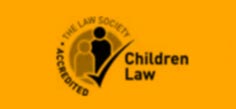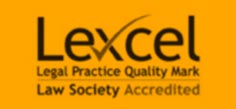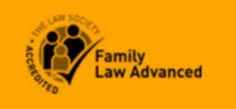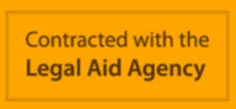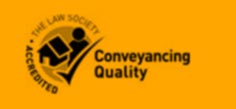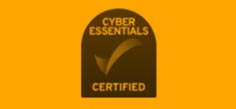Experienced Probate And Estate Administration Solicitors In Gateshead And Washington
Dealing with the administration of a loved one’s estate after their death can be hard. The process is often lengthy and sometimes complex and will come at a difficult time for everyone involved.
At John Donkin Solicitors, we know what you will be going through and you will find our probate team to be sympathetic and understanding. If you need help in obtaining a Grant of Probate or the administration of an estate after a death, we will do all we can to assist.
We can calculate the amount of Inheritance Tax payable and file the tax return with HM Revenue and Customs, apply for a Grant of Probate or a Grant of Letters of Administration and administer the estate on your behalf, dealing with liabilities and the funeral account and realising assets.
To speak to one of our Wills and probate team, call us on 0191 495 2896, email us on info@donkinlaw.co.uk or complete our Free Online Enquiry today.
“Excellent service nothing was a problem everything explained to enable us to fully understand the process.”
Our Probate And Estate Administration Services
We offer a full probate and estate administration service, including the following:
- Valuing the estate for probate
- Calculating Inheritance Tax
- Applying for a Grant of Probate
- Applying for a Grant of Letters of Administration if the deceased did not leave a Will
- Setting up trusts, where the Will specifies this
- Sale of property
- Advising estate executors and administrators
- Contentious probate, to include representing the estate if a claim is made against it
- Representing individuals in Wills and inheritance disputes, to include making a claim against an estate
Essential Steps In The Probate And Estate Administration Process
Winding up someone’s affairs after their death can be a long and time-consuming process and it is important to follow each step in order to avoid difficulties arising.
It is also important to keep proper records. As an executor or administrator, you could be personally liable for mistakes that cause a loss to the estate, even if they are inadvertent or genuine errors. For example, if tax is paid late and a penalty imposed, you would be required to pay this, or if you fail to identify a debt owed by the deceased and distribute the estate without clearing the debt, you might be required to pay it yourself. Liability is unlimited, so it is crucial to take care when dealing with an administration.
The key steps in administering an estate are set out below.
Valuing The Estate
All of the estate assets need to be identified and valued as at the date of death. This could mean obtaining official valuations of collectible items, having property valued and requesting valuations of accounts, shares and investment holdings.
Calculating Inheritance Tax
Whether or not Inheritance Tax is payable depends on the value of the estate. If a net estate is worth £325,000 or more, then Inheritance Tax is normally payable at 40% on the amount above that threshold. There are several other points to take into account however.
If a predeceased spouse did not use their £325,000 Inheritance Tax allowance, that can be applied to the deceased’s estate. There is also a potential further allowance of £175,000 for each spouse where certain property is left to direct descendants.
Cash gifts made in the seven years prior to the deceased’s death must also be taken into account, with Inheritance Tax payable on a sliding scale, depending on when the gift was made.
Applying Fr A Grant Of Probate Or A Grant Of Letters Of Administration
Once Inheritance Tax has been calculated and paid, an application can be made to the Probate Registry for a Grant of Probate or Letters of Administration. This is the document that gives legal authority to the estate’s executors or administrators to deal with the deceased’s affairs.
In the case of some small estates, a Grant may not be not necessary.
Sending Out The Grant And Collecting In The Assets
Once the Grant has been received, it can be sent to asset holders and requests made for holdings to be encashed. Other assets may need to be sold, such as valuable items and property.
Clearing Estate Debts
The executor or administrator must identify all of the estate debts and arrange for these to be cleared. Where there is a risk that not all debts are apparent, advertisements can be placed in legal and local newspapers requesting that debtors come forward to protect the administrator of the estate from claims.
Preparing Estate Accounts And Distributing The Estate
Once all of the work has been finalised, detailed estate accounts should be prepared setting out exactly how the estate’s assets have been dealt with, to include income during the administration period, on which tax may be payable.
The beneficiaries all need to be identified. If it is not obvious who the beneficiaries are, the executor or administrator should advertise for beneficiaries to come forward.
The estate should be distributed in accordance with the Will or, where the deceased did not leave a Will, in accordance with the Rules of Intestacy.
Professional Help
Estate administration can be time-consuming and it is important to consider whether you are able to take on the task before beginning. Executors and administrators often instruct probate solicitors to deal with the process on their behalf.
A solicitor can deal with the whole administration if required, to include the more complex tasks such as calculating Inheritance Tax, applying for the Grant of Probate and preparing estate accounts. Solicitors’ costs will generally be paid from the estate.
Contact Our Gateshead And Washington Probate Solicitors
Our expert probate and estate administration solicitors in Gateshead and Washington are sympathetic and approachable and will do all they can to help you at this difficult time. We can provide a quote for our probate services and answer any preliminary questions you may have.
To speak to one of our Wills and probate team, call us on 0191 495 2896, email us on info@donkinlaw.co.uk or complete our Free Online Enquiry today.
“Following a horrendous family matter, Graham and Sarah, acted with professionalism to deal with my case. Their diligence provided reassurance throughout. I would recommend their services to anyone who needed them.”

